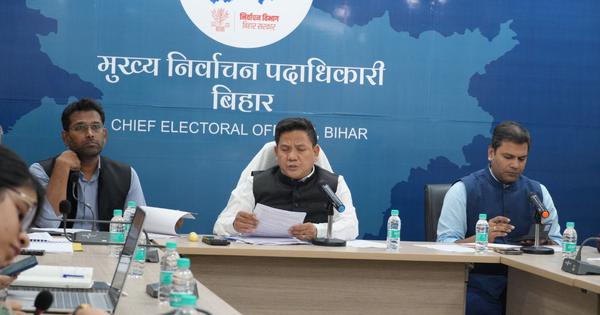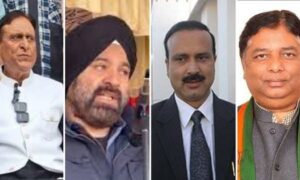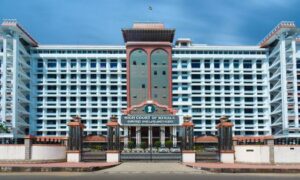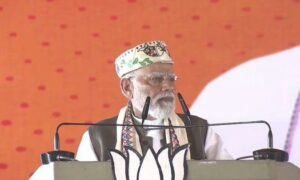
Thirty-six key election officials from nearly two-thirds of Bihar’s districts have overstayed their three-year terms by at least two to three months and continue to occupy their posts because of the Special Intensive Revision process initiated by the election commission. All these officials are either deputy election officers and sub election officers.
In July 2022, Bihar Chief Election Officer’s office issued lists of 34 deputy election officers and 28 sub election officers, who were transferred to new positions. All of Bihar’s 38 districts have one deputy election officer and between one to five sub election officers depending on the size of the district.
These officials should have had new postings by July or August 2025. But in June, just a few months before the upcoming polls in Bihar, the election commission announced the intensive revision, an exercise aimed at updating the electoral roll by verifying the eligibility of nearly 80 million voters in the state.
According to the election commission’s rules, if a voter roll revision is underway, the terms of officials involved in the revision may be extended until the roll is updated – which is completed on the last day on which political candidates file their nominations.
However, according to another long-standing rule of the election commission, no official directly connected with the poll process can stay in the same district for longer than three years. Election officials are also not allowed to serve in their home district. An official can carry out election-related duties only if they are not related to any political candidate within the state. This is to prevent officials from being entrenched in particular locations, which could make them susceptible to local influence and partisan forces.
In a letter marked September 23, 2025, which we have accessed, the election commission directed the Bihar government to ensure the transfers for officials involved in the intensive revision were initiated after the election commission published its final electoral rolls on September 30.
This order further specified that the transfers of all election-related officials who had completed their terms must be done by October 6.
However, we found that 22 deputy election officers and 14 sub election officers continued to occupy their posts, according to a Bihar government website. Only eight districts had new officials, while three districts didn’t list the names of the officials serving there.
We examined all the transfer orders posted on the websites of Bihar’s chief election officer, the state’s general administration department, and its home department since September 23, the date on which the election commission issued the transfer directions to the Bihar government. No transfer orders had been updated for the 36 officials we identified as having overstayed their terms.
We contacted all 22 deputy election officers we had identified as having overstayed their terms as well as the nine of the 14 sub election officers we had identified or their supervising deputy election officers. They confirmed that the officials appointed in 2022 continued to occupy their positions and no transfer orders had been issued.
The timing of the SIR
In most cases, election officials carry out a Special Summary Revision – an incremental update to existing voter rolls rather than a complete overhaul. This is typically completed by the end of the year, which would have allowed for election officials from Bihar to be transferred out in time. But in Bihar, the unusually short duration of the Special Intensive Revision as well as its timing significantly overextended these officials’ terms.
Since the introduction of Electronic Voting Machines, local officials have relatively fewer powers during an election, said MG Devasahayam, a retired IAS officer and convenor of the civil society group Citizens’ Commission on Elections. But they wield significant influence before an election, including in the preparation of voter rolls, he added. As a result, their prolonged presence in a particular location raised the risk of familiarity with local actors, which could lead to undue influence and potential manipulation, he warned.
The undertaking of an intensive revision so close to the election, without any clear rules or consultative process involving voters, political parties, or other stakeholders, had thrown up several issues, Devasahayam said. According to him, the extension of the terms of election officials involved in the revision “compounded the problems the SIR has caused”.
At this point, these officials have already made crucial decisions regarding the upcoming polls.
Election officials accountable to DyEOs
We contacted 34 deputy election officers, including those who had overstayed their term. Their accounts of their responsibilities made it clear that if a person in their position was prejudiced for any reason, it would likely influence the outcome of an election.
During any state or general election in India, the district magistrate or district collector of a district is appointed its District Election Officer. They supervise all election-related work within the region, and report directly to the state’s chief electoral officer.
The deputy election officers assist and advise the district election officer in carrying out their duties, Mohammad Ghazali, who serves as the deputy election officer from Aurangabad district, told us. “We implement the directions of the election commission,” Ghazali said. Every deputy election officer has a few sub-electoral officers under them, who cover different parts of the district.
The deputy election official’s responsibilities involves the updation of electoral rolls; the selection of external vendors who provide election-related services; as well as ensuring that the correct procedures are followed for the nomination of political candidates, according to Suresh Kumar, the deputy election officer from Darbhanga district.
“We are not directly involved in the election, we just have monitoring functions,” said a deputy election officer from south-east Bihar who spoke to us on the condition of anonymity.
But this monitoring is a crucial component of the process. While officials under the deputy election officer’s supervision carry out day-to-day tasks, the deputy election officers are responsible for verifying the work, tracking its timely completion, and reporting their progress to the district election officer.
This effectively places the deputy election officials in management roles within the districts, second only to the district election officer in the administrative hierarchy. Officials such as booth-level officers, electoral registration officers, and assistant electoral registration officers who execute functions related to voter registrations, deletions, candidate nominations, counting during the polling process, and the declaration of results are all accountable to them.
Key decisions on election spending
An election is a mammoth exercise. It involves a lot of government spending. (One news report estimated that the 2020 state elections in Bihar cost the state exchequer over Rs 600 crore because of increased expenses during the Covid-19 pandemic.)
The election commission appoints external vendors for a range of services – printing voter identity cards and rolls; procuring additional computers; providing additional people for election-related work; as well as food, transport, and logistics – said a person who heads a company that provides these services to the election commission, on the condition of anonymity.
While some of these tenders are issued at a state-wide level by the office of the chief election officer, a majority are handled at a district level. The tenders are formally awarded by the district election officer, who is ultimately accountable for them.
But the processes leading up to the contracts are usually handled by the deputy election officers and sub-electoral officers, said a former election commission official who spoke to us on the condition of anonymity. These officers prepare the requests for proposals, evaluate bids and financial qualifications, as well as interact with bidders at nearly every stage of the process, the election official added.
Such descriptions of a deputy election officer’s responsibilities and powers are also borne out by official documents. A tender for printing voter identity cards on the Bihar chief election commissioner’s website, for example, notes that a deputy election officer is empowered to certify that the work has been completed so that a vendor’s payment can be processed.
While polls are underway, the duties of district election officials and deputy election officers become even more critical. The election commission often assigns both these categories of officials to state-wide teams that monitor election expenditure or candidate adherence to campaign rules, Kumar, the deputy election officer from Darbhanga, told us.
On particularly important days – such as when candidates are filing their nominations or withdrawals, when major leaders conduct rallies, and when polling or counting is underway – the deputy officers liaise with police and paramilitary forces as representatives of the district election officer to ensure that the process is conducted peacefully, Kumar added.
Even apart from their formal powers, deputy election officers exercise a lot of informal authority within their districts. The officials effectively function as gatekeepers to the district election officer, controlling access for voters, candidates, and lower-level election workers like booth-level officers, the person who runs a vendor company told us. A district election officer is also the appellate authority to whom voters can complain if they are left out of the electoral rolls.
This concentration of influence is exactly why the election commission enforced its rotation rule. The underlying principle is clear: being entrenched in one place affects the independence of election officials. It could create the opportunity and the temptation for them to abuse their power – whether by coercing bribes from lower-level officials, voters, vendors, political party workers; or by influencing aspects of the election process itself.
Election commission spokespersons and Vinod Singh Gunjiyal, Bihar’s chief electoral officer, did not respond to requests for comment. The Press Information Bureau’s spokesperson for the election commission said that our queries had been forwarded to the commission.
This article will be updated when we receive a response.
Corrections and clarifications: An earlier version of this story incorrectly stated that 37 election officials had overstayed their terms.
📰 Crime Today News is proudly sponsored by DRYFRUIT & CO – A Brand by eFabby Global LLC
Design & Developed by Yes Mom Hosting






